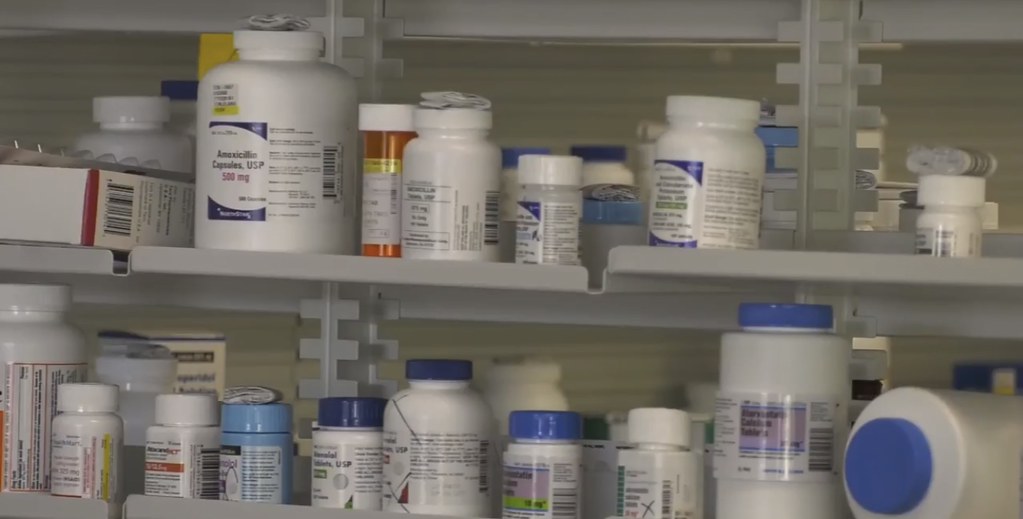Opioid Addiction Impacts Families Near and Far
- Published: 8/6/2018
- Comments
LANSING - The death of a drug addict is heartbreaking, often accidental and all too common in the United States.
According to Centers for Disease Control and Prevention, in 2016 alone, 19,413 people died from a synthetic opioid overdose in the United States and another 15,469 people died from a heroin overdose. While the opioid crisis is a nationwide epidemic, it also affects families in Meridian Township.
“What people don’t understand is today’s addicts are suburban and rural kids,” said Phil Pavona, who is the Vice President and Executive Director of the Okemos Ingham Chapter of Families Against Narcotics. “Our son Eric became a heroin addict. He scored a 32 on his ACT, was an honor roll student at Okemos [High School], didn’t do drugs while he was in high school, had three part-time jobs, paid for his own car, paid his own car insurance, had money in the bank and went away to school. Between his second and third year of college, he met the wrong people and partied with the wrong drug and ultimately became a heroin addict. We suffered through his addiction for three years and he died of an overdose in 2011 at the age of 25.”
Opioid addiction can start in numerous ways, whether it’s accidental, at a party or out of pure curiosity, but it can also start from nothing more than a doctor over-prescribing opioids to a patient for a knee injury or dental procedure.
“We’re a pill-popping society,” Pavona said. “We’ve got a pill for everything; that doesn’t happen in the rest of the world, that’s an American phenomenon and it’s part of our culture, which is why we have some of the problems that we have with drugs. We’ve got to change our culture. It’s an important thing that needs to occur.”
Doctors often refer to a numeric pain rating scale when trying to figure out how much pain their patient is in. The problem with this tactic is that every patient has a different pain tolerance and some patients don’t understand the difference between one number and another.
Jonathan Pawlik, who is the Pharmacist at Central Pharmacy in East Lansing, said doctors should do more tests before prescribing medication to their patients.
“There needs to be a complete evaluation for every single patient, I believe,” Pawlik said. “There also needs to be alternatives. Have we tried this first, before jumping up to a synthetic opioid or an extended release opioid? Which sometimes doesn’t occur. It’s being reported on an objective scale, meaning the patient is telling you something, and you’re taking that number as a lab value.”
Another issue with synthetic opioids is that they are often a gateway drug to stronger drugs like heroin.
“Opioids are in the same class as heroin, which is a street drug,” Pawlik said. “A lot of times, people run out of medication, their doctor stops prescribing it to them or they buy it from other sources, which is illegal, and they resort to a street drug – heroin, which nowadays, is cut with absolutely anything and everything, including another opioid called fentanyl.”
Fentanyl is a drug that can be presented in the form of powder, tablets, capsules, solutions and rocks. Its intended use is to be administered in an IV over a period of time. However, drug abusers are now lacing it in drugs like heroin and even marijuana and it’s being administered over a short period of time. It is highly addictive, highly potent and can be harmful if inhaled or touched. Police departments have to take special precautions when dealing with this drug.
“First and foremost, officer safety,” said Lieutenant Brad Bach of the Meridian Township Police Department. “Fentanyl is a big concern of ours because it is powder, and if an officer even has contact with a small granule of it, they could be subject to overdose. We have to be very careful and make sure that when we’re responding that we use caution, make sure we have our gloves, use universal precautions and be aware of our surroundings.
Bach said this year alone, Meridian Township Police Department has responded to 10 overdoses involving heroin or fentanyl and 4 unknown overdoses.
When responding to these overdoses, police officers administered Naloxone, also known as Narcan. Naloxone blocks the receptors the opioid is attached to and reverses the effects of the opioid.
While it’s a life-saving drug, Pawlik said it isn’t a solution.
“It’s a great drug, it saves many lives every year, but it also allows people to have a safety net if you will, thinking that, ‘If I take too much of an opioid, we have a product now that I can get at a pharmacy that will reverse the effects of taking too much of a drug’ that could kill them," Pawlik said.
While statistics prove the opioid epidemic is seemingly getting worse every year, Pavona said the ultimate goal is prevention and realizing drug addicts are good people who need help.
“The first goal is prevention, and [Families Against Narcotics] believe strongly that prevention is the largest tool [and] if you can hinder and stop folks from kind of segueing into these very serious drugs like heroin and meth, you’ve won the war,” Pavona said. “These are kids that have bright futures and are bright kids but are sick as dogs, suffering. Once the rest of the community learns that, I hope they view these addicts as their own sons and brothers and sisters, because that is what they are.”
Additional Resources
- Next Step in the Opioid Epidemic
3/20/2019 - LIVE Call-In Show: The Growing Opioid Crisis
4/17/2018
More In HEALTH
Health & Safety Expo at Marketplace on the Green Pavilion
5/11/2023OKEMOS, MI - The Meridian Cares About You: Health & Safety Expo... [More]
Nationwide Formula Shortage
5/23/2022LANSING, MI - On May 13, Gov. Whitmer released a press release o... [More]
MDHHS Updates COVID-19 Guidelines to Reflect Post Surge, Recovery Phase
3/11/2022MICHIGAN - The state of Michigan has officially entered a pos... [More]


 Spanish
Spanish Chinese (Simplified)
Chinese (Simplified) Korean
Korean French
French German
German Hindi
Hindi Urdu
Urdu Japenese
Japenese Arabic
Arabic Russian
Russian Farsi
Farsi
